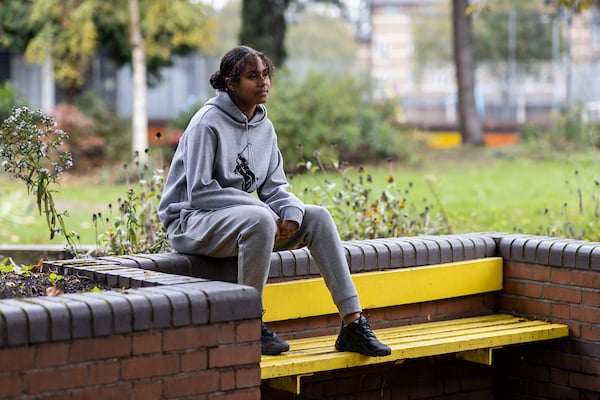My friend died of meningitis
True Stories

Letisha, 21, tells The Mix how she came to terms with losing her friend Shazia to meningitis, and what she’s doing to raise awareness of the deadly disease.
I never thought I’d be affected by meningitis
When I read about sudden tragedies in the news, I never thought it could happen so close to home. Having a friend or family member taken away so suddenly was something I didn’t ever think about. So when a close friend of my family passed away from meningitis within five days of contracting the illness, I found it extremely hard to come to terms with.
I questioned everything: how could this happen, Shazia was only 25 years old? I thought the doctors said her condition was getting better. What was her fiance going through? How will their five-year-old son cope with losing his mother? It hit us all very hard and made me think about how meningitis can be contracted and ruin so many lives in an instant.
Tell tale signs of meningitis
We still don’t know how she caught it, but since her passing I have done lots of research and learnt more about the disease. Diagnosing it early means it can be treated, but spotting it can be pretty hard. The ‘tumbler test’ is a common method of detecting the early signs.
If you have a red or brownish rash on your skin and it disappears by pressing a glass against it, you’re unlikely to have the illness. If it doesn’t fade, however, you should seek immediate medical help.
But the test is not always accurate, as the rash can fade on people of colour – whether they have the illness or not – and this was the case with Shazia.
If you’re wondering what a meningitis rash looks like, see our full meningitis article here.
Hard to come to terms with
Six months have now passed and although we celebrated what would’ve been Shazia’s 26th birthday last month her presence is still sorely missed. My older sister, Reyna, was very close to Shazia and still finds it hard to come to terms with. Visiting her grave at the cemetery on her birthday was extremely emotional.
Although my twin sister, Daniella, and I had only known Shazia for three years, we, too, were really affected by what happened. It’s the little things you miss; not hearing Shazia laughing and joking at birthday parties and family celebrations feels strange. But what hurts the most is not seeing her with her son, Kaishaan.
See our article on coping with grief and bereavement here.
I want to warn others about meningitis
It’s definitely opened my eyes to the dangers in life we have to be aware of, but at the same time I don’t want to live in fear. This tragedy could’ve been prevented, and for that reason I wanted to do something to warn others.
I got together with a few of my cousins and sisters to raise more awareness about the signs and risks of meningitis. We joined forces with a journalist from our local newspaper who wrote an article about Shazia’s ordeal and how it had encouraged us to educate more people about the virus, and not just the public.
There should be better training for those working in hospitals, because more could’ve been done for Shazia if the illness was diagnosed earlier. Shazia’s mum, Lorraine, has also voiced her concerns about additional training for doctors to prevent any unnecessary deaths.
Students are at risk from meningitis
As students are more likely to contract the virus from living together in halls of residence I have written a feature aimed at them. A student myself, I’m partly at risk, so I’ve spoken to a tutor at university and my article is going to be published in our student magazine.
As time goes on we will continue to educate others and ourselves in any way we can. Shazia’s untimely death has affected us all in different ways, but we all want the same outcome – for her memory to live on.
If you’ve suffered the loss of someone close to you, remember you can always reach out to The Mix for support. Find out about other conditions like meningitis in our body problems resources here.
Next Steps
- Marie Curie offers emotional support and practical information for anyone affected by terminal illness, and their friends and families. Call Marie Curie's helpline on 0800 090 2309 from 8am to 6pm Monday to Friday and 11am to 5pm Saturday.
- Cruse offers grief and bereavement support via phone, email, and face-to-face. You can call their free helpline on 0808 808 1677 (Monday - Friday, 9.30 - 5pm, extended to 8pm on Tuesdays, Wednesdays, and Thursdays) or visit their website for more support.
- Hope Again is a website created for young people by young people affected by bereavement. It offers a community of peer support, as well as a support service via email: [email protected]
- Chat about this subject on our Discussion Boards.
By Letisha Ellis
Updated on 16-Sep-2022
Image courtesy of Shutterstock.
No featured article










